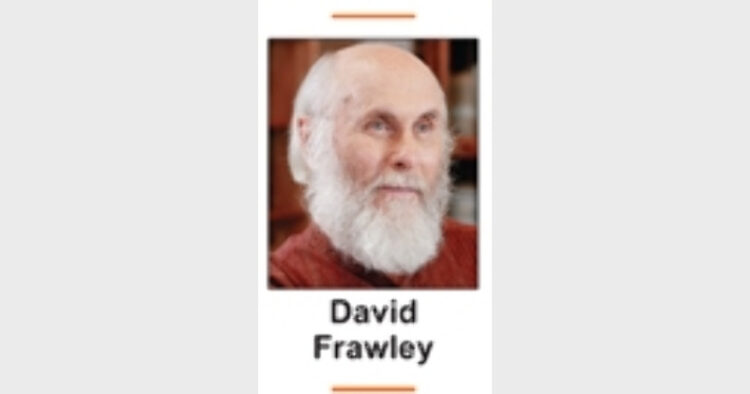My association with RSS goes back nearly thirty years now. In 1988, Dr B L Vashta, my Ayurvedic teacher in Mumbai, introduced me to a Hindu social organisation that he was involved with. Strangely that morning I went to my suitcase and found that I only had a brown khaki shorts to wear, not knowing this was RSS dress. Naturally when I met the group everyone was surprised to see that I was dressed much like them. Some karma, no doubt.
As I had already studied Sri Aurobindo and Swami Vivekananda for some years, I found RSS to be much like an extension of their line of Yoga-Vedanta into the social sphere. I gradually learned about RSS literature and read Guruji Golwalkar’s Bunch of Thoughts. I found Golwalkar’s work to provide a cogent view of India and reflect a similar inspiration to such as Aurobindo. Fortunately, I discovered RSS before encountering the massive propaganda against it. So when I began to read anti-RSS statements in the media, I could not naively believe these. I also began writing on ancient history and wrote several books on the Myth of the Aryan Invasion. Soon I found myself called “the well known fascist William Frawley,” by a major Indian weekly, merely for opposing the Aryan theory. This was strange for me to see as I was otherwise considered in the USA with my teaching of Yoga, Vedanta, natural healing and ecology to be a figure of the left. I quickly understood the distortions behind political discourse in India.
Later I came to work with many RSS groups and met with many RSS leaders, notably Sarsanghchalak KS Sudarshan, with whom I had close connection with for a number of years. I was able visit and speak before many RSS groups throughout India. In addition, I developed a similar relationship with the VHP. My views of RSS as shown below reflect this long experience and are not second hand.
RSS has probably been the most influential organisation shaping both India’s national thought and collective practice over the past century. What is most amazing about this fact is that RSS is a service organisation, not a political, academic or media body. RSS has been the main movement protecting India’s heritage, promoting its cultural ethos, and sustaining the strength of India’s society. It is a product of thinkers and workers from every region and profession in the country. It is the organisation that is most representative of India or Bharat as a whole, and most in touch with what is happening at a ground level on a daily basis down to the villages.
RSS is based is Dharmic values embracing India’s millennial cultural traditions. Its way of operation is Karma Yoga in the tradition of the Bhagavad Gita, emphasising social service as a spiritual path. It emulates the great leaders, sages and thinkers of India going back to the Vedas up through the independence movement to modern gurus. RSS seeks the welfare of all people in the country, regardless of their ethnic, religious, financial or cultural background. For RSS action on the ground helping others is mo7re important than promoting any ideology. Self-discipline and character building forms the core of its practices, encouraging selfless service not to convert others but to help others realise their own aspirations.
A call for national unity and cultural revival marked India’s independence movement during the last century. Unfortunately, in post-Independence India politics slipped back into the divide and rule strategy of the British. It created vote banks based upon caste, region or religion, which compromised national unity and set one section of society against the other. This lack of national integration arose not from embracing India’s unifying cultural traditions but from bringing in the divisive views of western socialism and Marxism that failed in India just as they did everywhere else in the world. RSS has often been denigrated by these socialist and leftist groups in India. It has countered Nehruvian socialism and its western looking political orientation with a Bharatiya point of view. Without the role of RSS as a countering force to communism in India, it is possible that India would have suffering the same cultural denigration as occurred in Communist China or the Soviet Union.
RSS is a force of national and cultural unity for all of India. It has maintained this national purpose and orientation over the last ninety years and today is stronger than ever, undergoing new transformations and expansions in India for another century. It is not a shadow of the past but a light for the future, looking forward to a new century of national growth and
development on both material and
spiritual levels.
The writer is the director of the American Institute of Vedic Studies














Comments